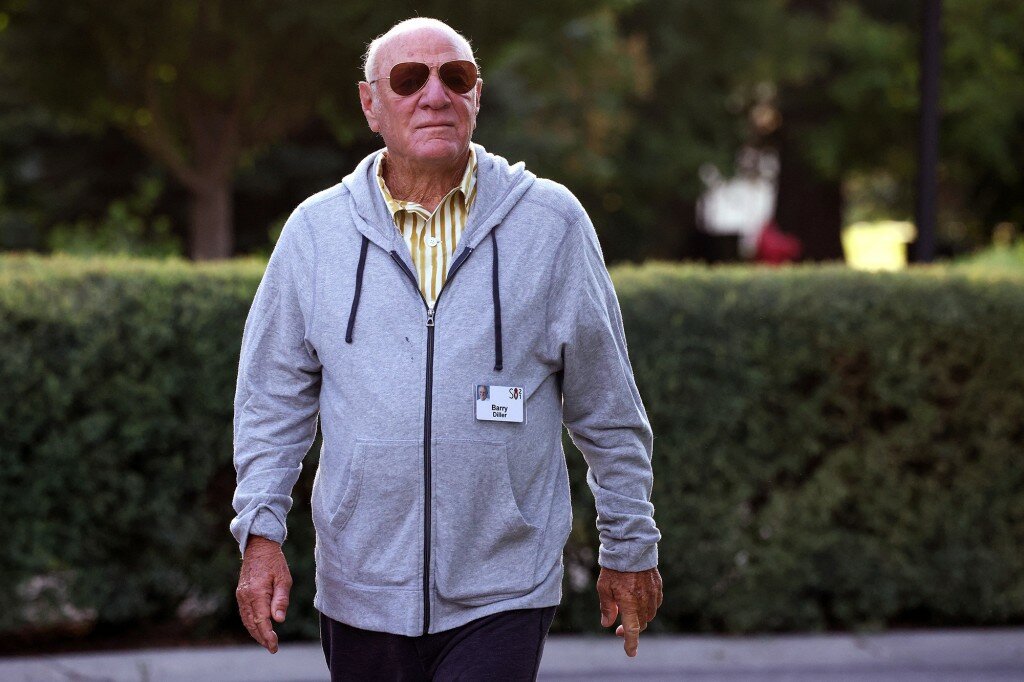Attorneys for Barry Diller’s media empire sought Tuesday to throw cold water on Tinder co-founder Sean Rad’s claims that the mogul’s companies cheated him out of billions.
Rad and other Tinder co-founders have accused Diller’s companies, Match Group and IAC, of cooking the dating app’s books during a key valuation process. They’re seeking a whopping $2 billion in damages. An attorney for Rad accused the companies of “lies, deception, bullying and cheating” during the plaintiffs’ opening remarks Monday afternoon.
But Match and IAC contend that Rad’s suit is a “sour grapes” attempt to unfairly wring billions out of Tinder’s current owners. They sought to cast doubt on the credibility of upcoming witness testimony during their opening remarks in the high-stakes jury trial.
Rosette Pambakain, a former Tinder marketing chief and witness for Rad who is expected to testify in support of Rad, was paid $2.5 million by a litigation funding firm before the trial and stands to be paid at least $3.5 million more if Rad’s side wins the case, Match and IAC attorney Bill Carmody said during his opening remarks.
A judge has ruled that the payments are legal, but Carmody nonetheless tried to use them to cast doubt on the reliability of Pambakian’s forthcoming testimony in the trial, which kicked off on Monday and is expected to last for several weeks.
“When she comes to testify in this case,” Carmody asked New York state Supreme Court jurors, “how do you think that’s going to affect her testimony?”
Carmody also said that another witness for Rad’s side, Tinder’s ex-finance chief James Kim, was paid $2 million by the litigation funding firm in 2019 and stands to gain another $1 million if the plaintiffs win.

“With that carrot dangling before his very eyes, do you think we might see a different James Kim?” asked Carmody.
Rad’s camp has previously said that Pambakian and Kim, who were both originally plaintiffs in Rad’s suit but were forced to drop out because they’d signed arbitration agreements, were only given the millions of dollars because they had stock options stripped away from them when they were fired from Tinder.
Meanwhile, Orin Snyder, one of Rad’s attorneys, said in a statement to The Post that there was a “mountain of evidence showing that IAC and Match corrupted the valuation of Tinder and cheated our clients.”
“The defense today asked the jury to ignore the evidence and, instead, smeared the men and women who built Tinder and help turn it into one of the most successful companies in the world,” Snyder said.

A third witness for Rad’s side, Jonathan Badeen, was not paid any money ahead of the trial but stands to be paid an unspecified amount of Rad wins, according to Match. Like Pambakian and Kim, Badeen was also a plaintiff in Rad’s suit but withdrew because he had signed an arbitration agreement.
Rad, who is set to testify Wednesday morning, claims that Tinder should’ve been valued at $13.2 billion when it was acquired by Diller’s companies in 2017 but that then-CEO Greg Blatt and other company brass fed investment banks “doom-and-gloom” numbers that resulted in an artificially low valuation of $3 billion.
Carmody sought to shoot down that idea by pointing to projections by Jefferies bankers who were working with Rad. The attorney claimed that Jefferies’ own growth calculations showed Tinder should be valued at $2.75 billion. He also said that all of Match Group — including Tinder — was valued at $5.4 billion at the time, which he said was evidence that Rad’s claim that Tinder alone was worth $13.2 billion is outrageous.
Carmody also rebuffed an allegation that Blatt and other executives failed to tell Barclays and Deutsche Bank — the two banks ultimately responsible for creating the $3 billion valuation that Rad is now disputing — that they planned to launch a tool called “likes you” as a paid feature that would have increased the value of the company.

He presented evidence that he said showed both banks knew “likes you” — which lets Tinder users see which other people have “swiped right” on their profiles — was going to be a paid, subscription-based feature.
Barclays and Deutsche Bank themselves are not being accused of wrongdoing since Rad claims they made the valuations based on misleading information.
Match was on the back foot heading into Tuesday’s hearing, according to Susquehanna litigation analyst Thomas Claps, who wrote in an analyst note late Monday that the risk for Match of an expensive ruling or settlement was “heightened” after Rad’s attorneys’ opening statements.
“The significant allegations raised in Plaintiffs’ opening statement today reinforce our belief that the trial presents significant risk for IAC/MTCH – especially given the severe allegations of corporate misconduct at the highest level of the companies and the inherent uncertain nature of jury trials,” said Claps, predicting that the parties may settle the suit for between $300 million and $700 million.

“A settlement could happen at any point during the trial,” Claps added.
Justine Sacco, a spokesperson for Match, said in a statement to The Post that “every one of Sean Rad’s claims are made up by Rad and the investors funding this lawsuit.”
“The jury saw, and we will continue to show, that Sean has no credibility,” she added. “His conspiracy theories and fantasies fall apart under the slightest scrutiny, as demonstrated today.”
Blatt and Diller are both expected to testify in the coming weeks.


